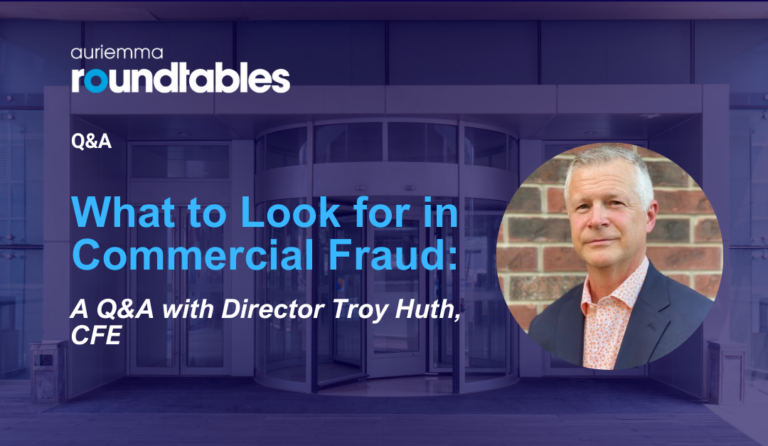July 16, 2024
Q&A: How the Supreme Court’s Undoing of the Chevron Decision Could Impact Consumer Lenders
Last month, the Supreme Court overturned the Chevron decision, undoing a longstanding precedent of courts deferring to federal agencies in interpreting and implementing legislation.
Over the past 40 years, about 19,000 court decisions have hinged on this so-called “Chevron deference.”
While this recent ruling does not itself overturn those cases, it does open them up to re-litigation, as well as expose many future regulatory decisions to legal challenges. This shift could expose broad swaths of federal regulation to fresh legal scrutiny, and, in doing so, present operational and compliance challenges in virtually every sector of the economy.
We sat down with Missy Meggison, Auriemma Roundtables’ General Counsel and Director of the Consumer Relations Consortium (CRC), to discuss the ruling’s effects on consumer finance ecosystem, particularly for lenders and third-party collectors.
What is the Chevron decision, and what are the implications of it being overturned?
The Chevron decision established what’s commonly known as the “Chevron deference” doctrine. It refers to a 1984 Supreme Court case, Chevron v. Natural Resources Defense Council, which gave federal agencies fairly wide leeway in interpreting legislation and in crafting regulations.
Because Congress tends to be vague in their wording of new laws, courts historically deferred to agencies like the OCC or the FTC to fill in the gaps where there was ambiguity. That ambiguity was key. In narrowly worded laws, Chevron deference didn’t apply, and agencies were expected to follow congressional mandates as written.
In overturning Chevron, the Supreme Court ruled that federal agencies do not and should not have the authority to resolve that ambiguity. Instead, the justices ruled, it’s up to the courts to decide if a regulation aligns with the letter and the spirit of the law. Going forward, if a complainant sues the OCC, for example, courts can take a more active role in deciding if a particular regulation is lawful.
What future changes can financial institutions expect?
Once legal challenges start to work their way through the court system, the implications could be far-reaching. Courts could undo decades-old regulations, forcing institutions to operate in a state of limbo for what could be months or years of litigation and appeals.
During that time, one likely outcome is a patchwork of regulations from different federal court districts and appellate circuits: A judge in California could uphold a regulation while one in Florida strikes it down. A judge in New York may allow some parts and discard others. Until higher courts make a ruling, or lawmakers clarify the underlying law, companies would have to operate under multiple different systems depending on where they operate and where their customers are.
Are there any particular regulations that you foresee being challenged?
It’s hard to say. Cases decided under the Chevron deference doctrine touch just about every corner of our economy and the regulatory environment that surrounds it, including new regulations issued on an ongoing basis. In some cases, undoing longstanding regulations could completely change how a given industry does business.
Lenders themselves are subject to countless regulations that may now come under scrutiny. In the collections space, consumer groups could challenge numerous regulations related to how third-party collections agencies communicate with borrowers, which could have upstream impacts for lenders when it comes to vendor management.
What are some examples of how this could play out?
Keep in mind that undoing or challenging even mundane practices can massively disrupt operations. To illustrate: In 2021, the 11th Circuit Court of Appeals, composed of Alabama, Florida, and Georgia, ruled that sending consumer information to a third-party printing vendor violated privacy protections under the Fair Debt Collection Practices Act. The fallout was massive. Third-party debt collectors, and the financial institutions that sent them accounts, scrambled to figure out if they needed to come up with ways to generate, print, and send letters for affected borrowers in-house. Suddenly, a decades-old practice was no longer safe. Meanwhile, copycat cases popped up across the country, with varying levels of success. Even though the court ultimately vacated its decision, uncertainty remains.
Now, imagine that type of uncertainty spread across every regulation touching the financial services world; that’s what vacating the Chevron decision might do. And, unlike agency-prompted regulatory changes that tend to be announced well in advance and include a public comment period, these court decisions could take effect overnight.
What can companies do to prepare for such sudden changes?
For compliance and operations teams, it’s about being nimble. Trying to predict how the courts may react to any given lawsuit is less important than having infrastructure that can quickly adapt to those changes. This may mean increasing investment in compliance teams that may see higher workloads in instances of patchwork regulation, as well as investing in operations systems and personnel who can make changes quickly. It could also entail preparing for those customer-originated lawsuits.
One reprieve is that we’re all facing this uncharted territory together. The institutions that can tap into best practices and industry expertise will be best equipped to weather this ongoing uncertainty.
About Auriemma Roundtables
Auriemma Roundtables give leading financial services companies access to the right people and data to help them optimize their business practices, maximize efficiency, and navigate complexity. The result for members? Solutions that work for them, measurable ROI, and a roadmap for the future.
The post-Chevron regulatory environment is top of mind for our compliance-oriented Roundtables. See below for more information on getting involved:
- Consumer Relations Consortium (CRC): Built for third-party debt collection market participants, from lenders to debt collection agencies and vendors. Learn more about the CRC, or contact Alex Glass.
- Auto Compliance Roundtable: Built for Compliance officers of auto lenders, both captive and non-captive. Learn more about the Roundtable, or contact Tami Corsi.
- Card Compliance Roundtable: Built for Compliance executives for card issuers. Learn more about the Roundtable, or contact Tami Corsi.



